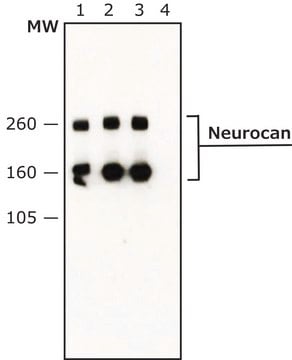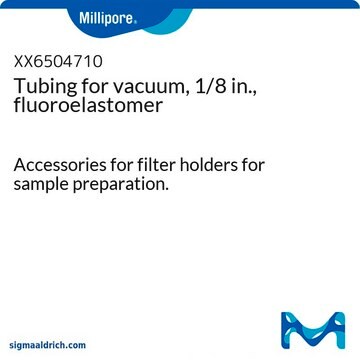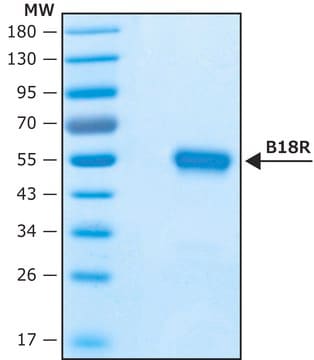추천 제품
생물학적 소스
mouse
Quality Level
항체 형태
purified immunoglobulin
항체 생산 유형
primary antibodies
클론
650.24, monoclonal
종 반응성
rat
제조업체/상표
Chemicon®
기술
immunocytochemistry: suitable
immunohistochemistry: suitable
immunoprecipitation (IP): suitable
western blot: suitable
동형
IgG1
NCBI 수납 번호
UniProt 수납 번호
배송 상태
wet ice
타겟 번역 후 변형
unmodified
유전자 정보
human ... NCAN(1463)
일반 설명
Neurocan is the major soluble chondroitin sulfate proteoglycan in the brain. It is thought to play a functional role in axonal growth and guidance and in the establishment of specific neural pathways during embryonic brain development. Neurocan expression in the brain is developmentally regulated. Early on the major form of neurocan consists of a 245 kD core protein with approximately two chondroitin sulfate glycosoaminoglycan chains of 22 kD each. Later neurocan comprises a 180 kD core protein. Both forms of neurocan contain only chondroitin 4-sulfate glycosoaminoglycan chains. By virtue of their high expression at sites of neurnal damage and trauma, chondroitin sulfate proteoglycans, including neurocan, are thought to inhibit successful nerve regeneration.
특이성
Neurocan. The specificity of clone 650.24 was checked by western blots of brain lysates and purified neurocan; the antibody reacted with the identical bands that clones 1D1 and 1F6 (other neurocan monoclonals) reacted; furthermore, the staining pattern of brain sections with these antibodies were all identical. Finally 650.24 also recognized recombinant neurocan expressed in transfected 293 cells by western blot.
면역원
Embryonic rat brain proteoglycans
애플리케이션
Research Category
Neuroscience
Neuroscience
Research Sub Category
Neuroregenerative Medicine
Growth Cones & Axon Guidance
Neuroregenerative Medicine
Growth Cones & Axon Guidance
This Anti-Neurocan Antibody, clone 650.24 is validated for use in IP, WB, IC, IH for the detection of Neurocan.
Western blot: 1-2 μg/mL. Reacts with polypeptides of 260 and 160 kDa on western blots of embryonic rat brain tissue extracts. The 160 kDa species is typically only seen aftyer chondroitinase treatment.Treatment is at a concentration of chondroitinase of 10U/mL in Tris-HCL pH 8.0. Make tissue or cell extract in 20-50mM Tris pH 7.6-8.0 with 0.15M NaCl in the presence of protease inhibitors. Add 1 microliter of enzyme to 30 microliters of extract and incubate 30 minutes at 37C. Then add SDS sample buffer, heat or boil sample as normal for SDS reducing samples.
Immunocytochemistry: 1:5
Immunohistochemistry on 4% paraformaldehyde fixed tissue: 1:1,000
Immunoprecipitation: 1-2 μg/mL
Optimal working dilutions must be determined by the end user.
Immunocytochemistry: 1:5
Immunohistochemistry on 4% paraformaldehyde fixed tissue: 1:1,000
Immunoprecipitation: 1-2 μg/mL
Optimal working dilutions must be determined by the end user.
물리적 형태
Format: Purified
Purified immunoglobulin. Liquid in 0.02M Phosphate buffer, 0.25M NaCl with 0.1% sodium azide.
저장 및 안정성
Maintain at 2-8°C in undiluted aliquots for up to 6 months.
분석 메모
Control
POSITIVE CONTROL:
early post-natal rat brain. Not expressed in kidney, lung, liver, or muscle.
POSITIVE CONTROL:
early post-natal rat brain. Not expressed in kidney, lung, liver, or muscle.
기타 정보
Concentration: Please refer to the Certificate of Analysis for the lot-specific concentration.
법적 정보
CHEMICON is a registered trademark of Merck KGaA, Darmstadt, Germany
면책조항
Unless otherwise stated in our catalog or other company documentation accompanying the product(s), our products are intended for research use only and are not to be used for any other purpose, which includes but is not limited to, unauthorized commercial uses, in vitro diagnostic uses, ex vivo or in vivo therapeutic uses or any type of consumption or application to humans or animals.
Not finding the right product?
Try our 제품 선택기 도구.
Storage Class Code
10 - Combustible liquids
WGK
WGK 2
Flash Point (°F)
Not applicable
Flash Point (°C)
Not applicable
시험 성적서(COA)
제품의 로트/배치 번호를 입력하여 시험 성적서(COA)을 검색하십시오. 로트 및 배치 번호는 제품 라벨에 있는 ‘로트’ 또는 ‘배치’라는 용어 뒤에서 찾을 수 있습니다.
Wu-Fu Chen et al.
CNS neuroscience & therapeutics, 21(9), 698-707 (2015-07-21)
To date, no reliable methods have proven effective for treating spinal cord injury (SCI). Even systemic administration of methylprednisolone (MP) remains controversial. We previously reported that intrathecal (i.t.) administration of granulocyte colony-stimulating factor (G-CSF) improves outcome after experimental spinal cord
Frauke Seehusen et al.
PloS one, 11(7), e0159752-e0159752 (2016-07-22)
In demyelinating diseases, changes in the quality and quantity of the extracellular matrix (ECM) may contribute to demyelination and failure of myelin repair and axonal sprouting, especially in chronic lesions. To characterize changes in the ECM in canine distemper demyelinating
James M Massey et al.
Experimental neurology, 209(2), 426-445 (2007-06-02)
Increased chondroitin sulfate proteoglycan (CSPG) expression in the vicinity of a spinal cord injury (SCI) is a primary participant in axonal regeneration failure. However, the presence of similar increases of CSPG expression in denervated synaptic targets well away from the
Alterations in chondroitin sulfate proteoglycan expression occur both at and far from the site of spinal contusion injury.
Andrews, EM; Richards, RJ; Yin, FQ; Viapiano, MS; Jakeman, LB
Experimental neurology null
Marc R Del Bigio et al.
Cerebrospinal fluid research, 5, 12-12 (2008-07-12)
The cerebral cortex may be compressed in hydrocephalus and some experiments suggest that movement of extracellular substances through the cortex is impaired. We hypothesized that the extracellular compartment is reduced in size and that the composition of the extracellular compartment
자사의 과학자팀은 생명 과학, 재료 과학, 화학 합성, 크로마토그래피, 분석 및 기타 많은 영역을 포함한 모든 과학 분야에 경험이 있습니다..
고객지원팀으로 연락바랍니다.








